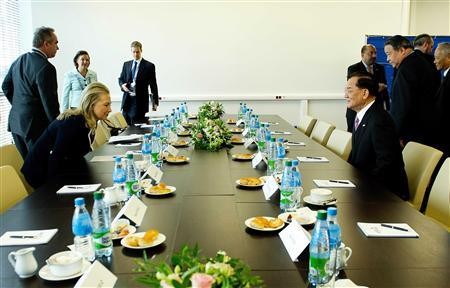In order to ensure food security for the upcoming Asia-Pacific Economic Cooperation meetings, China has assigned 20 companies as food-material sources from which serving hotels can purchase their ingredients.
Such stringent policy on the procurement of ingredients will prevent any food-security issue, especially when it comes to the preparation of halal food.
According to Beijing Food and Drug Administration assistant director Zhang Fengping, the providers of food ingredients are trusted and top-notch, and include the famous Quanjude Roast Duck Restaurant popular for its roast peking duck.
Zhang added that all 34 hotels preparing and serving food for the summit should buy their ingredients only from these 20 sources.
"If the providers cannot meet the demand, hotels can purchase raw materials from their own sources, but they have to report to us the details," Zhang said.
Aside from supervising menus, recipes and ingredients for the summit, the administration is also suspending the sale of healthcare and cosmetic products in all host hotels.
There are still aspects that need polishing, said Fan Bao, assistant director of Beijing Ethnic Affairs Commission.
Fan said that China has a limited understanding of halal food preparation, and Beijing has lower standard compared to what is known internationally.
A professor at China Agriculture University named Fan Zhihong noted the gravity of the issue, since serious consideration of halal food standards will even require the administration to check the religion of the butcher.
According to Fan, food security in Beijing is in a better situation, because it is virtually impossible to "buy something from the supermarket that doesn't meet international standards."
China is host to 12 APEC meetings from October to November.


